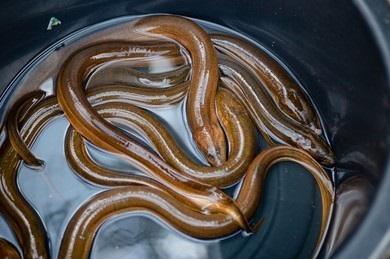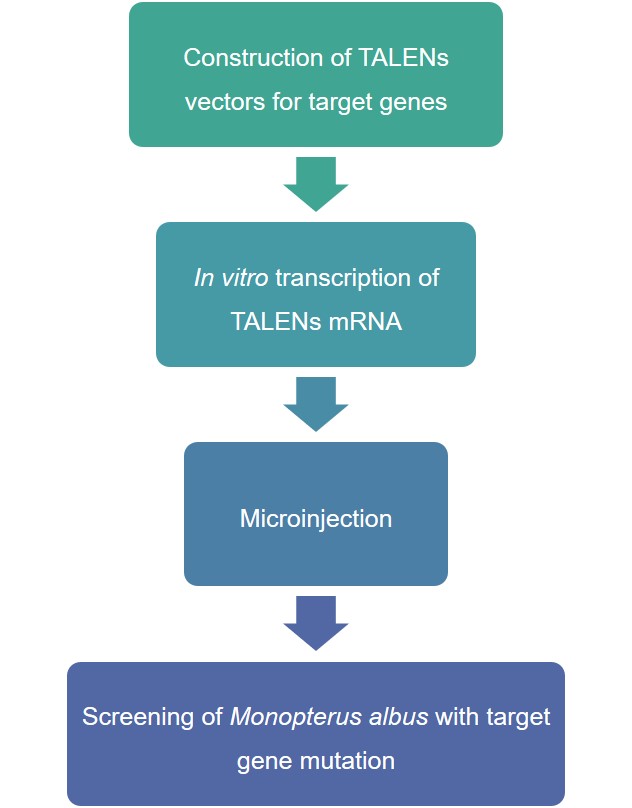Monopterus albus is a freshwater fish widely distributed in East Asia and is also known as Swamp eel or Rice filed eel. Monopterus albus has an elongated body shape, similar to that of snakes and eels. The body surface is smooth and scaleless, covered with a smooth mucous membrane, and the dorsal, anal and caudal fins are reduced to a single unit, with no obvious tissue areas. The pectoral and ventral fins have disappeared, there is no swim bladder, the gills are degraded, and when breathing, the head will stick out of the water, using the pharyngeal and intestinal cavities to assist in breathing. It is a temperate fish, widely distributed in East and Southeast Asia, mainly inhabiting caves and ditches along the banks of rivers and lakes, and in the mud layer of rice fields.
 Figure 1. The Asian swamp eel or Monopterus albus.
Figure 1. The Asian swamp eel or Monopterus albus.
Monopterus albus is one of the first representative scleractinian fishes found to naturally change from female to male, i.e., naturally reversing this particular sex development process. juveniles of Monopterus albus are all female, small and slow-growing. As female eels gradually become sexually mature, they develop into complete male individuals. The entire process of sex reversal is unidirectional, and males do not return to females after completing sex reassignment.
This natural characteristic makes it difficult to breed eels on a large scale (the fry needed for eel breeding are mainly from wild fishery) because of the lack of synchronization between male and female parental development and the difficulty in obtaining a stable population of male and female parents.
TALENs gene editing technology services
Lifeasible has successfully applied TALENs technology to the study of gene function in model and economically farmed fish such as zebrafish, medaka, tilapia, Pelteobagrus fulvidraco. Nowadays, Lifeasible has also established a stable and efficient gene-editing system in Monopterus albus. Our platform can be used for the validation of Monopterus albus functional genes, on the one hand, to explore the genetic mechanism of Monopterus albus sexual inversion. On the other hand, it can be used to explore the development of new strains of Monopterus albus with controlled sex development and provide genetically improved superior breeds for the sustainable development of Monopterus albus breeding.

Lifeasible transcribes and synthesizes mRNA in vitro by constructing TALENs gene editing vector of the target gene. The left and right arms of TALENs mRNA of the target gene were mixed and introduced into the animal pole of Monopterus albus fertilized embryos by microinjection method, and Monopterus albus with mutated target gene was obtained after incubation. For more information or any inquiry requirements, please contact Lifeasible.
Reference
Lifeasible has established a one-stop service platform for plants. In addition to obtaining customized solutions for plant genetic engineering, customers can also conduct follow-up analysis and research on plants through our analysis platform. The analytical services we provide include but are not limited to the following:
STU-CRISPR System Improves Plant Genome Editing Efficiency
April 19, 2024
Application of Exosomes in Facial Beauty
April 12, 2024